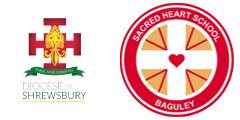Relationship and Sex Education (RSE)
Relationship and Sex education is based on teaching the fundamental building blocks and characteristics of positive relationships, with particular reference to friendships, family relationships, and relationships with other children and with adults. This starts with people being taught about what a relationship is what friendship is, what family means and who the people are who can support them. From the beginning of primary school, building on early education, pupils are taught how to take turns, how to treat each other with kindness, consideration and respect, the importance of honesty and truthfulness, permission seeking and the concept of personal privacy. We want all children to grow up healthy, happy, safe, and able to manage the challenges and opportunities of modern Britain. That is why, from September 2020 all primary age children will be taught relationships and health education. This is in line with the DfE and our Catholic Values. To view our policy, please see below or follow the link through our Policies tab.
These subjects are designed to equip your child with knowledge to make informed decisions about their well-being, health and relationships as well as preparing them for a successful adult life.
From the beginning, teachers talk explicitly about the features of healthy friendships, family relationships and other relationships which enable young people young children are likely to encounter. In drawing attention to these in a range of contexts we enable pupils to form a strong early understanding of the features of relationships that are likely to lead to happiness and security. This will also help them to recognise any less positive relationships when they encounter them.
Teaching about families require sensitive and well-judged teaching based on knowledge of pupils and their current circumstances. Families of many forms provide a nurturing environment for children. Care will be taken to ensure that there is no stigmatism of children based on their home circumstances and needs, to reflect sensitively that some children may have a different structure of support around them for example looked after children or young carers.
A growing ability to form strong and positive relationships with others depends on the deliberate cultivation of character traits and positive personal attributes, sometimes referred to as virtues, in the individual. We encourage the development and practice of resilience and other attributes, this includes character traits such as helping pupils to believe they can achieve, perseverance with tasks, work towards long-term rewards and continue despite setbacks. Alongside understanding the importance of self-respect and self-worth, pupils will develop personal attributes including honesty, integrity, courage, humility, kindness, generosity, trustworthiness and a sense of justice. This is achieved in a variety of ways including by providing planned opportunities for children to undertake social action, active citizenship and voluntary service to others locally or more widely. Parents can find more information by reading Understanding Relationships and Health Education in your Child’s Primary school: A Parent Guide
At Sacred Heart, we have chosen to use Ten:Ten ‘Life to the Full’ as our RSE Programme. The programme has been carefully written to ensure that RSE is taught through a Catholic lens in line with Church teachings and has been approved for use by the Diocese of Shrewsbury.
Our programme will cover three modules:
· Module one: Created and Loved by God explores the individual. Rooted in the teaching that we are made in the image and likeness of God, it helps children to develop an understanding of the importance of valuing themselves as the basis for personal relationships.
· Module two: Created to love others explores the individual’s relationship with others. Building on the understanding that we have been created out of love and for love, this module explores how we take this calling into our family, friendships and relationships, and teaches strategies for developing healthy relationships and keeping safe including digital harms and harmful content online.
· Module Three: Created to Live in Community explores the individual’s relationship with the wider world. Here we explore how human beings are relational by nature and are called to love others in the wider community through service, through dialogue and through working for the Common Good.
It is an entire platform of creative resources that will engage, inform and inspire children. This includes interactive video content, story-based activities, employing a wide range of tools, original worship music and an accompanying programme of classroom prayers. The resources are updated regularly through the online platform to meet emerging issues and guidelines. In addition, there is an online parent platform so that parents and carers can engage with the teaching and deepen the experience for their child.
